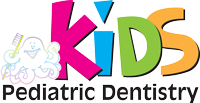
14 Jan Children with Bad Breath – Get Rid of It
Bad breath, medically referred to as halitosis but more often known as just having bad breath, is rather common and affects both adults and children. It’s fairly normal to have bad breath from time to time, particularly when you first get up in the morning or after eating foods like garlic or onions, which are known for their pungent odor.
Factors Influencing To Foul Breath
There is no need to be alarmed if you notice that your child sometimes has a foul odor coming from their mouth. On the other hand, if your child’s bad breath is persistent, it may be an indication of something more serious. The following are some of the most common factors that contribute to young people having bad breath.
Cavities and Lack of Proper Hygiene: If your child does not clean and floss their teeth properly, food particles will get lodged between their teeth, providing a breeding ground for germs. Bacteria are the root cause of plaque accumulation, which in turn leads to cavities and tooth decay, all of which contribute to a foul breath odor.
Dry Mouth and Mouth Breathing: Children are unable to make saliva when they breathe through their lips, which may happen either when they are asleep or because their noses are congested. Rinsing and washing bacteria away with saliva is essential. Saliva is required for this.
Oral Ulcers, Infections and General Health: Because of nasal congestion and mouth breathing, many pediatric disorders, especially those that affect the upper respiratory system, sinuses, and throat, may cause children to have bad breath. Bacteria feed off of the mucus that is produced by the body. In most cases, this clears up after the infection, illness, or wounds that caused it have been treated.
Medications: There is a chance that your child’s mouth will smell funny after taking some medicines, especially ones that make the mouth dry.
Remedy for Children’s Bad Breath: Bad breath may usually be treated successfully. So, what exactly is the most effective way to go in this situation?
Brushing and Flossing: One of your top concerns should be making sure that your child brushes and flosses their teeth the way properly. They need to floss their teeth at least once each day and brush their teeth for a total of at least two minutes, twice per day. When they are brushing their teeth, remind them to also brush their tongues. This will help prevent bad breath. In addition, you may want to consider including an antibacterial mouthwash in their routine.
Drink Plenty of Water: Make certain that your child consumes a lot of water each day. Drinking water stimulates the production of saliva, which helps remove the bacteria that contribute to bad breath and keeps your mouth moist. Give your child enough water to drink throughout the day, and do your best to avoid sugary and carbonated drinks for as long as you can.
Your child needs to have regular dental checkups to keep his or her mouth and teeth healthy. When we come to see your child on a more regular basis, it will be much simpler for us to see and keep an eye on potential problems such as bad breath, plaque, tartar, spread of cavities, and tooth sensitivity before they become worse. In addition, this is the perfect opportunity for you and your child to ask any questions that come to mind, schedule a consultation, or contact Children’s Dentist Allen Texas area.
Further Reading on Bad Breath in Children
- 5 Surprising Causes for Bad Breath in Children and What You Can Do About It
- Toddler Bad Breath: How to Get Rid of It
- Why Would a Toddler Have Bad Breath?
- 12 causes of bad breath in kids (and what to do about it)
